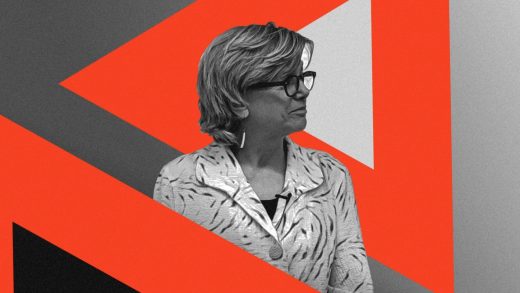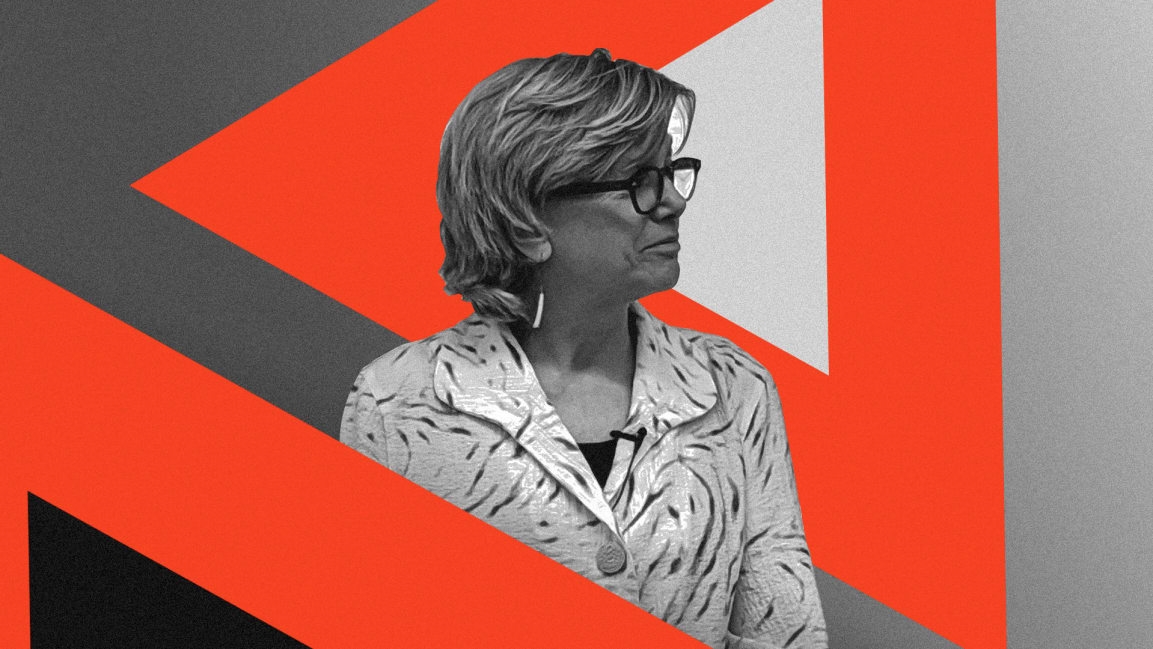To make the economy more fair, we need to make it more democratic
Marjorie Kelly has a problem with the word “capitalism.” As the senior fellow and EVP of the Democracy Collaborative, a nonprofit research organization, says, “People like that word and if they want to hold onto it, I suppose they can. But to me, I think of ‘capital-hyphen-ism’—a system designed to benefit capital holders and maximize financial capital. Until we come to terms with that, nothing we do is really going to change.”
While public discourse is often reduced to a hyper-simplistic debate between capitalism and socialism, Kelly, a former journalist and businessperson envisions and advocates for a different approach that transcends a binary choice. “It’s either corporate capitalism or state socialism, and we’re fighting,” she says. “What I believe is that we need a democratic economy. That means you bring the values of the public good and broad-based prosperity into the core design of economic institutions and practices. So it should be in the DNA of companies, the DNA of economic development, and in the DNA of investing and banking and purchasing.”
Kelly delineated her vision in the recent book The Making of a Democratic Economy, coauthored with Democracy Collaborative cofounder and president Ted Howard. The book identifies seven elements of a fairer economy: community, inclusion, place, good work, sustainability, democratic ownership, and ethical finance. “It hangs together as a new paradigm for how to organize an economy,” she says.
Perhaps the best example of embedding these ideas into American institutions—and one of Kelly’s great passions—is her evangelism for democratic ownership of companies. “Capital has a big role to play in scaling employee ownership,” says Kelly, whose Fifty by Fifty initiative seeks to grow employee ownership from more than 10 million workers today to 50 million by 2050. Kelly and the Democracy Collaborative are strategic advisors to the Fund for Employee Ownership, a Cleveland-based cooperative development fund, which had raised $13 million by this summer, nine months after launching. It intends to acquire businesses and convert them to be employee-owned. She also cites that Dick May, an investment banker, proposed a $100 billion federal loan guarantee program to support workers who want to buy their employers. “If we had that in place,” Kelly notes, “we could double the number of employee owners in 10 years. If we were serious about saying the prosperity of all of us matters, then let’s get some assets in the hands of all of us.”
One employee-owned company that excites Kelly because it also focuses on sustainability, another key tenet of a democratic economy, is Recology, a waste-management company whose mission is to create a world without waste. “This is a company with $1.2 billion in revenue. It’s 100% owned by its workers. It’s [also] a place where garbage truck drivers make $100,000,” she says. The company seeks to convert waste to its best possible use rather than opt for the cheapest disposal method. The employee-owners connect with the communities they serve, which means that the when neighbors get four bins for trash, recycling, yard waste, and composting—the trash one ends up being the smallest. “San Francisco loves Recology so much that they do not have to bid for that contract to be the city’s waste hauler,” Kelly says, relaying that Recology’s CEO Mike Sangiacomo credited the company’s employee-ownership model for helping it win the business.
Even politicians are starting to see the appeal. Colorado governor Jared Polis established a commission for employee ownership. (Colorado is home to New Belgium Brewery, one of the higher-profile employee owned businesses.) “You see more cities advancing employee ownership: Madison, Wisconsin. Berkeley, California. New York City,” Kelly says. “Even under Trump, he signed into law a new mandate saying that the Small Business Administration needs to incorporate employee ownership into a tool kit.”
Kelly’s goal is to scale what’s working “sector by sector, model by model.” For example, “people are talking about public pharma,” she says. “Healthcare is going to be the first place where we say, ‘it’s health that matters.’ How do we promote that, not how do we maximize returns for shareholders? That’s an example of a sector approach. Employee ownership is an example of a model approach.” Beyond that, there’s public ownership, she says, noting that the success of the public Bank of North Dakota has fostered renewed advocacy for other publicly owned utilities, from finance to energy.
“It’s not just, ‘Oh, here’s a cool model over here. Oh, look, there’s a movement over there,’” Kelly says. “It’s not just a tune-up of capitalism.”
(3)



